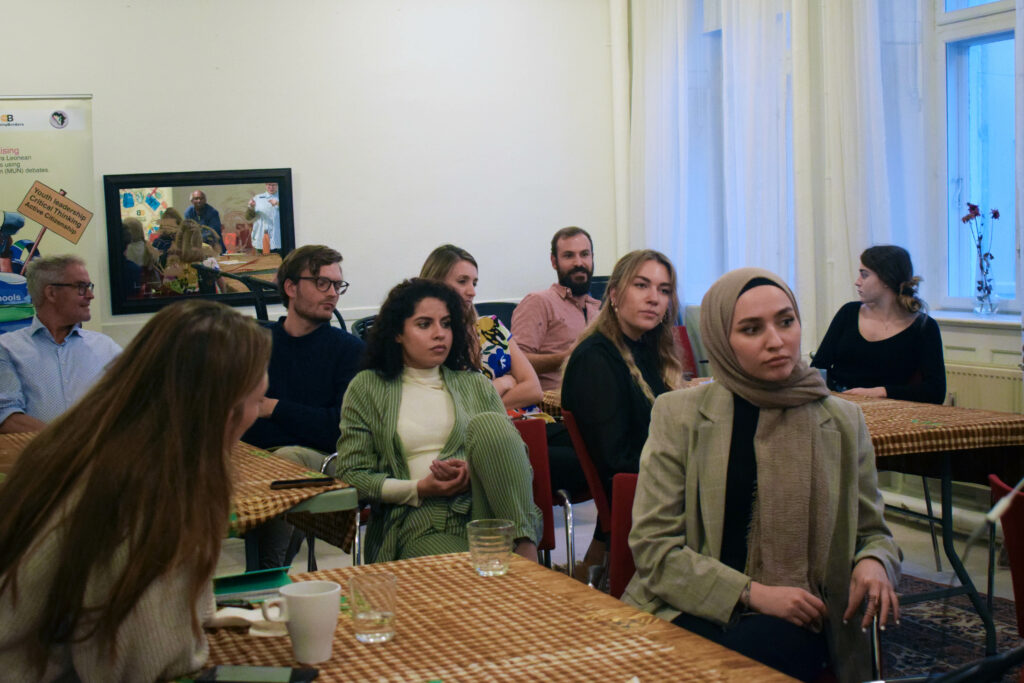By Lavinia Ortu
“I realized that food is one of the key issues in the global inequality, global climate change, and culture. ” says Franciska Rosenkilde at the latest Food for Thoughts event. “Food is identity, an opportunity to connect with different cultures”
Franciska, Copenhagen’s cultural mayor, is currently running for the November 16th elections with the Alternative party. We were lucky to have her as a guest last Thursday, where she addressed different issues regarding the climate crisis and how that interlays both with culture and food.
A meal is the point of connection to every social issue in many ways. We are what we eat; the smell of a spice, the taste of a particular meal can teleport us to a different reality or even bring us back to a childhood memory whether it’s grandma’s house or one of the many special places in our heart.
Franciska started in the kitchen; “chopping up carrots” as she said during her introduction. A passion that later translated into her career as a cook. Subsequently, the love for that field drew her into pursuing a Bachelor degree in health and nutrition, but it was primarily her Masters degree in food supply and climate change that made her realize how prominent the climate crisis is and to join forces with the Alternative party. In 2017 she was elected as Copenhagen’s cultural mayor; she had to learn and grow everyday, as she had barely any political experience at that time. One of the most important aspects about her life as a politician now is being surrounded by the citizens and acting like a true representative for her voters.
“Food is significant in meeting people” was one of her first statements; a concept that is very dear to our team as sharing good meals is at the core of the Food for Thoughts’ events. Different cultures express their identity thanks to traditional meals and food is the point of connection for an integrated society. In the mayor’s view finding solutions for climate change can help solve issues related to inequality in the Danish society; especially when this concept is applied to the food production industry, that is deeply ruining our ecosystem.
The Alternative party understands and prioritise climate change as the most peculiar crisis in our society. “We can’t keep doing the same things over and over again expecting better results”. To tackle climate change we need to transform our system; this is what the Alternative party wants to achieve once elected. The consumption and food production at this day and age is the problem. We have to stop the absurd growth that our economy is trying to reach; it is necessary to take a step back and find more sustainable ways of life, as well as invest in green energy.
“In Denmark art and culture are important to have, it doesn’t have that heaviness in the welfare” According to Franciska’s view climate politics and cultural politics are the most important aspects in the green transition. When we reflect upon ourself through education and culture we can reflect upon society and change it.






